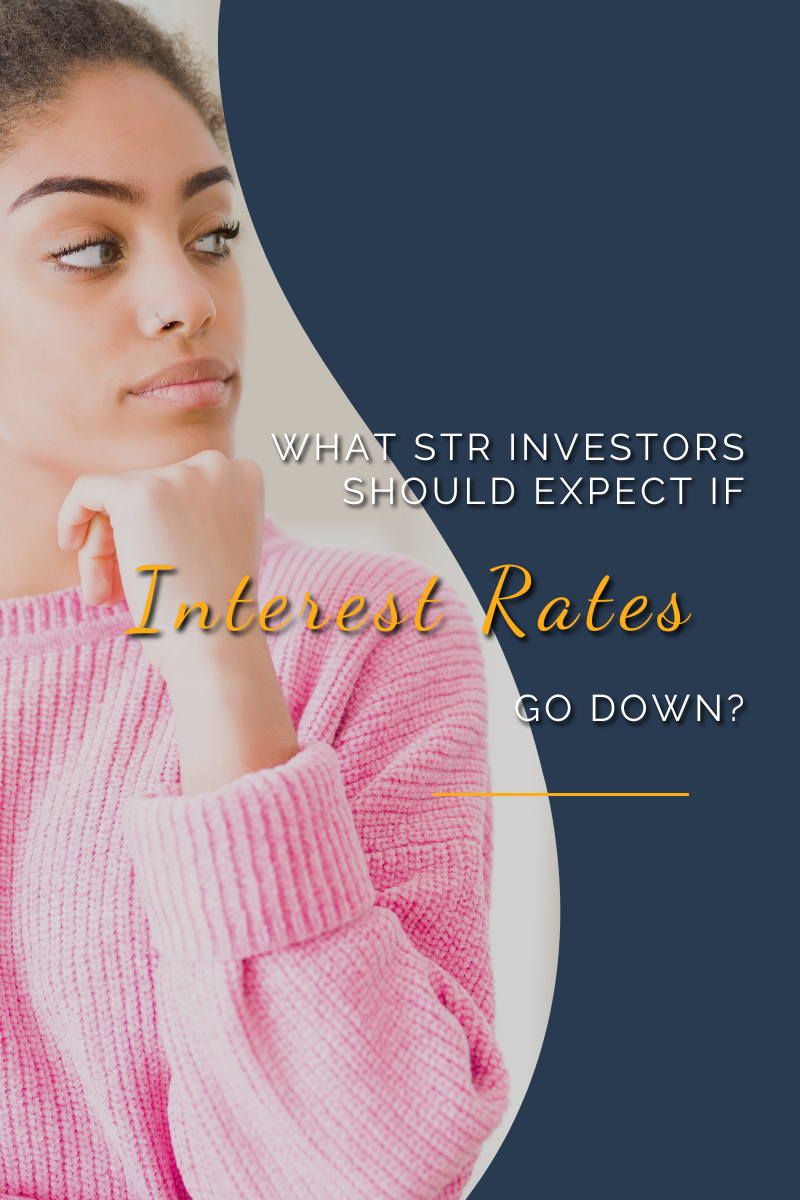Interest rates are a critical factor for all types of real estate investors, but they are particularly impactful for short-term rental investors. When the Federal Reserve cuts interest rates, it influences not only the cost of borrowing but also the broader economic environment. Understanding how these changes can affect your investments is essential for making informed decisions. In this blog, we’ll explore what short-term rental investors should expect if interest rates go down, and how to position your portfolio to maximize opportunities.

Lower Mortgage Rates: An Opportunity For Acquisition Or Refinancing
One of the most immediate and noticeable effects of a Federal Reserve rate cut is the reduction in mortgage interest rates. Based on our data, a reduction in the Fed rate from 5.50% to 4.50% can decrease mortgage interest rates from around 7.00% to 5.90%.
For short-term rental investors, this change means cheaper access to capital. Lower mortgage rates make it more affordable to purchase new properties or refinance existing loans. Let’s break down the impact using a scenario:
Scenario A: No Rate Cut
- At a 7.00% mortgage interest rate, a typical monthly payment on a $1 million property is around $5,625.90. This translates to an annual cost of $67,510.80.
Scenario B: Moderate Rate Cut
- With a moderate cut, bringing the rate down to 6.20%, the monthly payment drops to $5,179.13, and the annual cost to $62,149.56.
Scenario C: Large Rate Cut
- A more substantial cut to 5.90% further reduces the monthly payment to $5,015.65 and the annual cost to $60,187.80.
These reductions can significantly lower the cost of owning a short-term rental property, freeing up capital for other investments or operational costs. Moreover, refinancing at a lower rate could reduce your monthly outgoings, improving your cash flow.
Increased Cash Flow And Profit Margins
With lower interest rates, short-term rental investors can expect improved cash flow and profit margins. The data illustrates a direct correlation between reduced mortgage payments and increased net income. Here’s how:
For short-term rental investors, this means more money in your pocket each year. With a healthier cash flow, you have the flexibility to reinvest in property improvements, expand your portfolio, or cushion against market fluctuations.
Increased Cash Flow And Profit Margins
With lower interest rates, short-term rental investors can expect improved cash flow and profit margins. The data illustrates a direct correlation between reduced mortgage payments and increased net income. Here’s how:
For short-term rental investors, this means more money in your pocket each year. With a healthier cash flow, you have the flexibility to reinvest in property improvements, expand your portfolio, or cushion against market fluctuations.
More Attractive to Travelers: Boosting Occupancy Rates
For short-term rental investors, it’s not just about the cost of borrowing; it’s also about occupancy rates and rental income. Lower interest rates can stimulate consumer spending, including travel and tourism. Here’s how it works:
Higher Disposable Income:
Lower Cost of Financing for Travel:
For short-term rental investors, this uptick in travel demand could mean higher occupancy rates and potentially higher nightly rates, leading to increased revenue.
Risks to Consider: Overheating of the Market
While there are several advantages to lower interest rates, short-term rental investors should also be mindful of potential risks:
Strategic Moves for Short-Term Rental Investors in a Low-Rate Environment
To maximize the benefits of lower interest rates, consider the following strategies:
Conclusion
Lower interest rates create a favorable environment for short-term rental investors by reducing borrowing costs, increasing cash flow, and boosting ROI. However, it’s essential to remain vigilant about market conditions and potential risks. By strategically positioning your portfolio and taking advantage of the opportunities that lower rates provide, you can enhance your investment returns and ensure long-term success.













